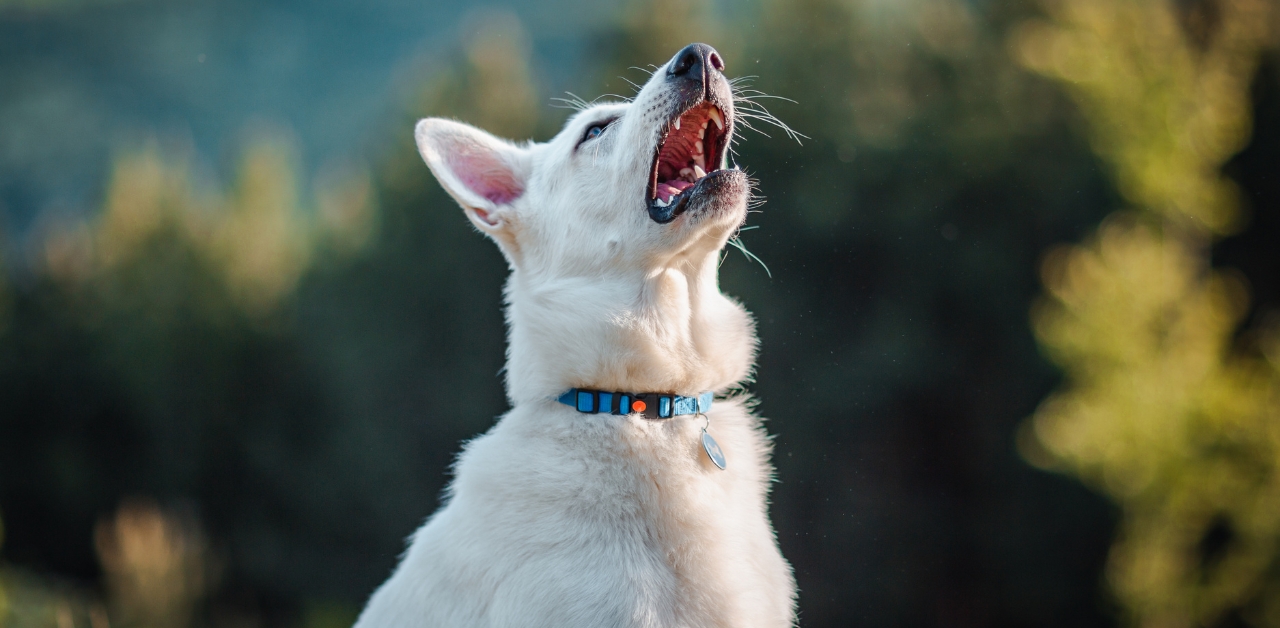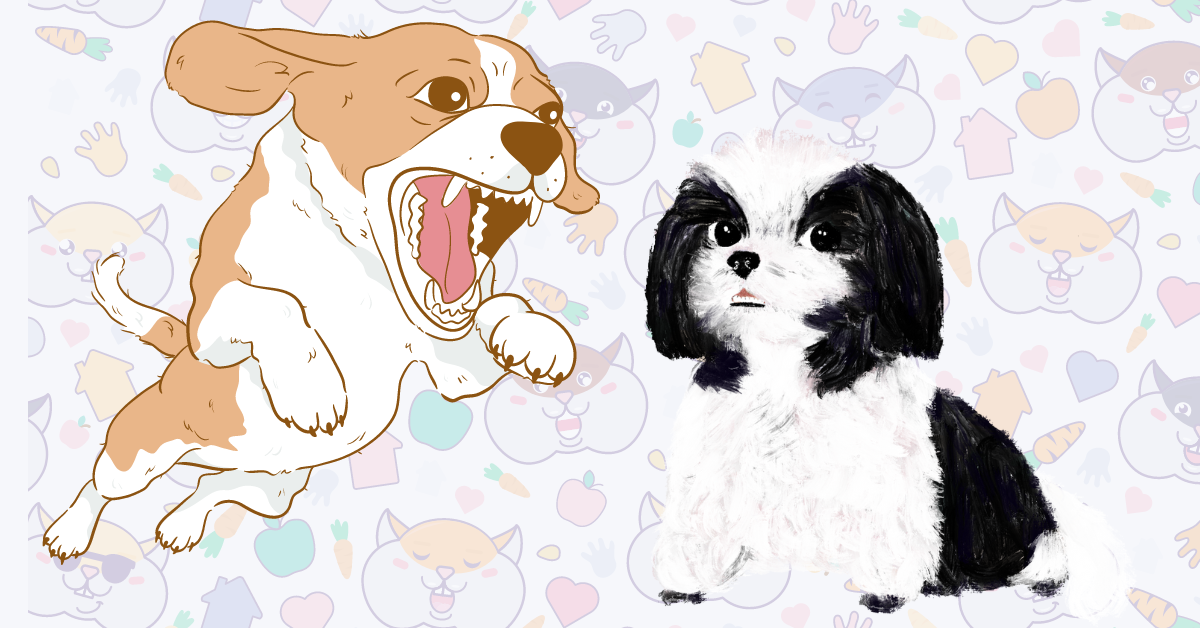The Bernese Mountain Dog Husky mix, also known as the Bernsky or Huskernese, is a cross between the Bernese Mountain Dog and the Siberian Husky. This large designer dog combines the best traits from both parent breeds, creating a stunning canine with a loving personality. For families looking for an active and loyal companion, the Bernese Husky mix could be the perfect pet.
The Bernsky
The Bernese Mountain Dog originated as a farm dog in the Swiss Alps, used for drafting and herding cattle. Bernese are known for being gentle giants with sweet dispositions. Siberian Huskies are energetic working dogs that traditionally pull sleds in the Arctic regions. When combined, the Bernsky has the potential to inherit the friendly nature of the Bernese and the high activity needs of the Husky.
This big fluffy dog is also referred to by the portmanteaus Bernsky and Huskernese. It likely first appeared in the early 2000s when designer dogs started becoming popular. The Bernese Mountain Dog and Siberian Husky are both recognized by the American Kennel Club and have consistent purebred standards. Crossbreeds like the Bernsky do not have standardized appearances since they involve two diverse gene pools.

Size, Coat, and Coloring
The Bernese Mountain Dog Husky mix is a large dog, typically weighing 60 to 95 pounds and standing 22 to 27 inches tall at the shoulder. They have dense double coats that can be tricolored like the Bernese parent or have Husky markings. Common coat patterns include black, white, and brown, like a Bernese, or grey and white, like a Husky.
Their thick fur helps insulate them from cold weather. Expect lots of shedding year round and heavy seasonal blowing of the undercoat. Daily brushing can help manage loose hair and keep the coat neat. Bathing should only be done when necessary to avoid stripping the coat of protective oils.

Temperament and Personality
Since the Bernsky is a cross between two pure breeds, temperament can vary considerably depending on which parent breed is dominant. In general, these are affectionate, good-natured dogs that bond strongly with their families. Proper socialization at a young age is critical to prevent any wariness toward strangers.
Bernese Mountain Dogs are known for being calm and predictable. Huskies tend to be energetic with a strong prey drive. A Bernsky puppy has the potential to inherit either temperament type or land somewhere in between. Early training and clear boundaries will be important for managing behavior.
The Bernese parent gives this mix a strong desire to be close to their people. Separation anxiety can be a problem for the breed if left alone for long periods. Huskies are prone to destructive chewing behaviors when bored, so be sure to provide plenty of interactive toys and exercise.
Ideal Living Conditions for the Bernese Husky Mix
While they can adapt to apartment living with enough activity, Bernskies thrive in homes with fenced backyards where they can play and explore. A house is better suited to this large breed than an apartment or condo. They should live indoors as part of the family.
The Siberian Husky lineage prefers cold weather in this mix. Be prepared to keep them comfortable in warmer climates with access to shade, cooling mats, and air conditioning. Their double coat makes overheating a risk. Avoid shaving their coat, which can damage the hair and skin.
Since this is an active hybrid, they need a home that can keep up with their exercise needs. Plan on providing at least 60-90 minutes of vigorous activity per day. Labsky owners who enjoy hiking, jogging, or swimming make great matches for this energetic breed.
Bernskies thrive when they can be with their owners and dislike being left alone for long hours. If every family member works full-time, this may not be the best pet. Their loyalty and affection make them wonderful companions for retirees or families with a stay-at-home parents.
Training and Exercise Needs
The Bernese Mountain Dog Husky mix is highly intelligent and benefits from early socialization and obedience training. Owners of this energetic pet should be prepared to give them plenty of daily exercise and mental stimulation through activities like sledding, carting, or dog sports. Attending puppy classes as soon as your vet gives the okay for public exposure helps set good manners from the start. Huskies are known to be independent thinkers capable of outsmarting their owners!
Positive reinforcement training is highly recommended over punishing methods, which can backfire on headstrong breeds. Food rewards and praise encourage these dogs to cooperate and keep training sessions fun. Their eagerness to please made Bernskies highly trainable when they started young.

Siberian Husky lineage gives this designer dog breed high energy and exercise needs. Long daily walks and plenty of active playtime are musts for physical and mental stimulation. Off-leash exercise should only be allowed in very secure, fenced areas due to their strong prey drive. The Bernese parent contributes more of an easy-going temperament to balance out the Husky intensity.
Due to their working dog background, Bernese Mountain Dog Huskies need a job to do. Sign them up for canine sports like agility, rally obedience, or dog carting to put their energy and smarts to good use. Hiking and jogging alongside you also appeal to their natural abilities.
Grooming Needs
Use a slicker brush and undercoat rake to reach deep into that dense hair. Bathe only when needed using gentle dog shampoo.
Trim their nails every few weeks to prevent cracking and overgrowth. Check and clean their floppy ears regularly. Dental care is another essential part of grooming. Brush their teeth, provide chew toys, and offer dental treats to maintain good oral health.
Feeding a Balanced Diet
These large hybrid dogs have hearty appetites to fuel their active lifestyles. Feed them a high-quality commercial diet formulated for big breeds with about 24-26% protein and 12-15% fat. Divide daily portions into two or three meals instead of free feeding to prevent obesity.
Two to three cups of dry kibble per day is typical for these dogs, but exact needs vary based on age, build, and activity level. Monitor their condition and adjust food as needed to keep them fit. Limit treats and avoid overfeeding.
Health Concerns
Crossbreeds can inherit a combination of health issues affecting their parent breeds. For the Bernese Mountain Dog Husky mix, this includes:
- Joint dysplasia– Abnormal development of hips and elbows.
- Meniscal injury– Tearing of shock-absorbing cartilage in knee joints.
- Von Willebrand’s disease– Abnormal blood clotting.
- Degenerative myelopathy– Spinal cord disease causing paralysis.
- Eye problems– Cataracts, corneal dystrophy, progressive retinal atrophy.
Larger breed dogs also have higher cancer rates. Responsible breeding, including OFA health testing of parent dogs, can help minimize risks. Maintain preventative vet care and be proactive in catching any emerging issues early.
With proper exercise, training, socialization, and veterinary care, the Bernese Mountain Dog cross Husky has the potential to become a loving family companion for 10 to 14 years. Their intelligence and loyalty make them very rewarding dogs for the right homes.
Potential Challenges for Inexperienced Owners
Despite their many positive qualities, Bernskies may present some challenges for first-time dog owners or those unfamiliar with the parent breeds. Their high energy level and strength can be difficult to handle without proper training. Bernskies need extensive daily exercise and mental stimulation to prevent destructive behaviors or escape attempts. Their heavy shedding also requires a commitment to frequent grooming.
Bernese Mountain Dogs are prone to separation anxiety if left alone for long periods. Their Husky lineage makes them adept escape artists when bored or lonely. Owners need to provide plenty of interactive toys and activities when away from home. Siberian Huskies have a strong prey drive that requires secure leashes or fenced yards. Recall training is challenging with this breed mix.
The Bernsky’s large size and exuberant nature can lead to accidentally knocking over small children. They may also have a tendency to herd family members or nip at heels. Early socialization and training are key to curbing any unwanted behaviors. Veterinary costs for medical issues common in the parent breeds can also add up quickly.










